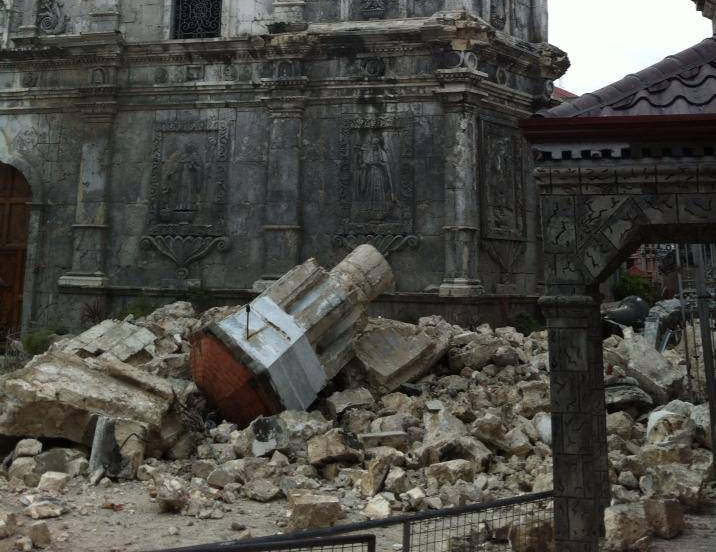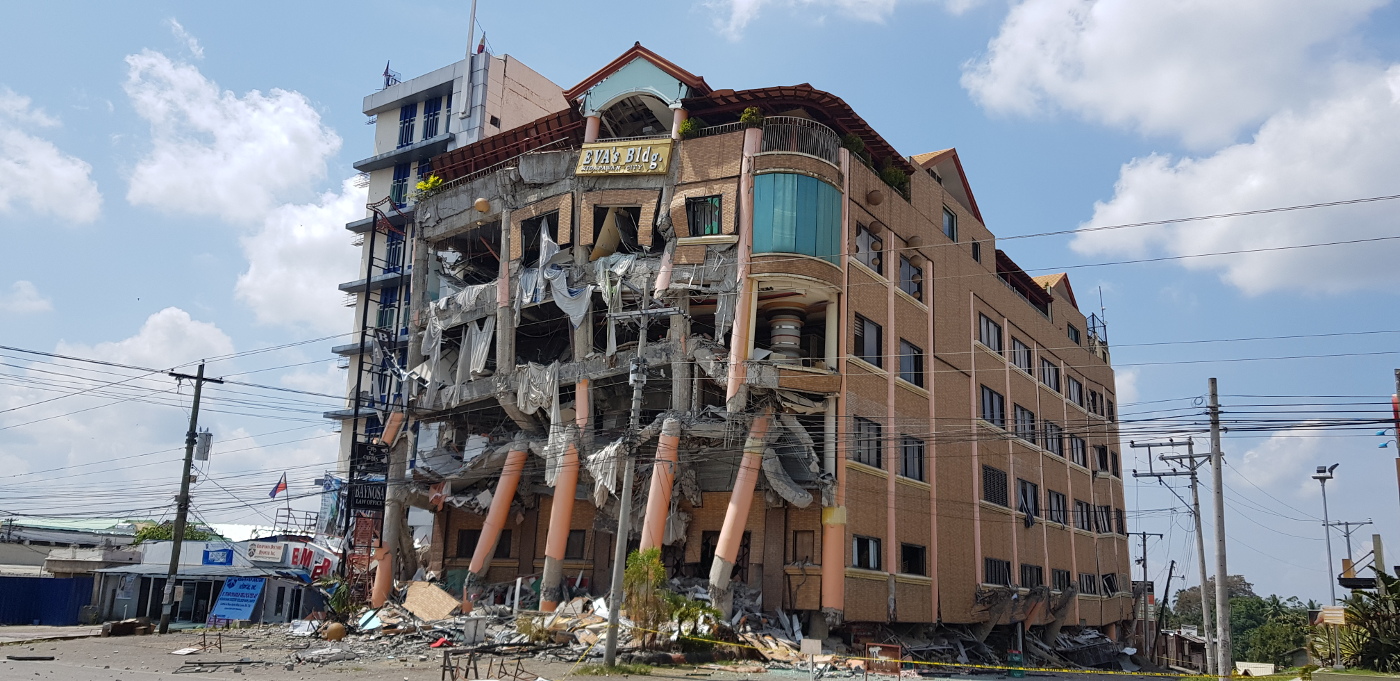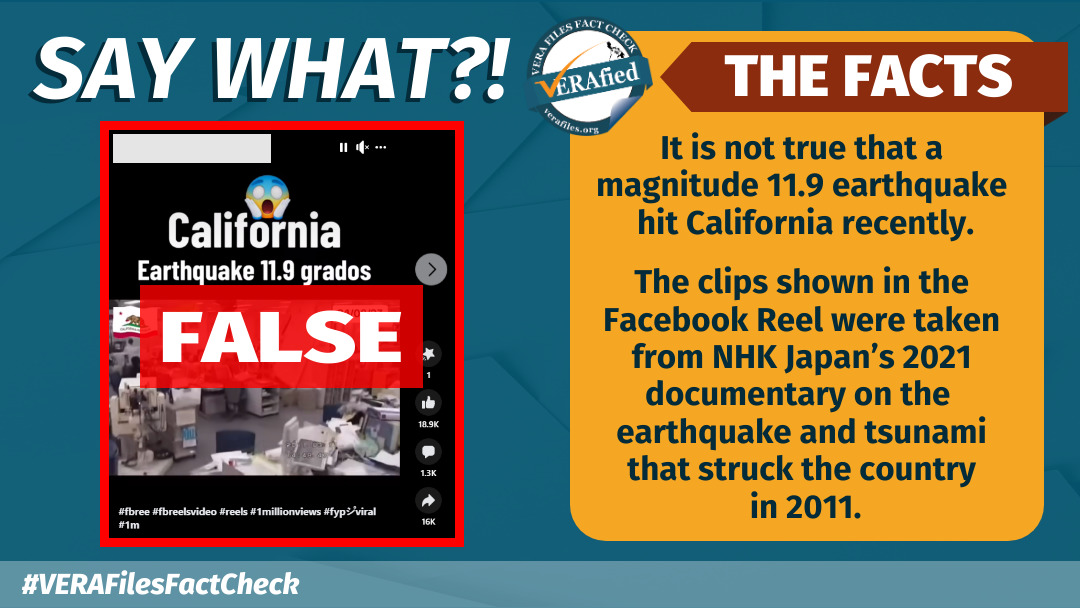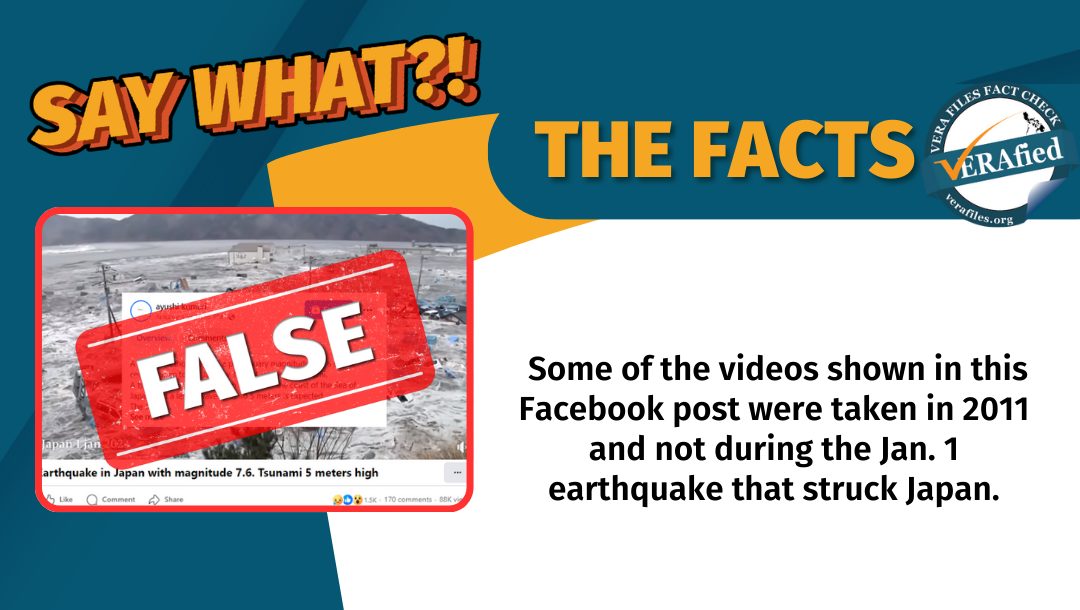By YVONNE T. CHUA
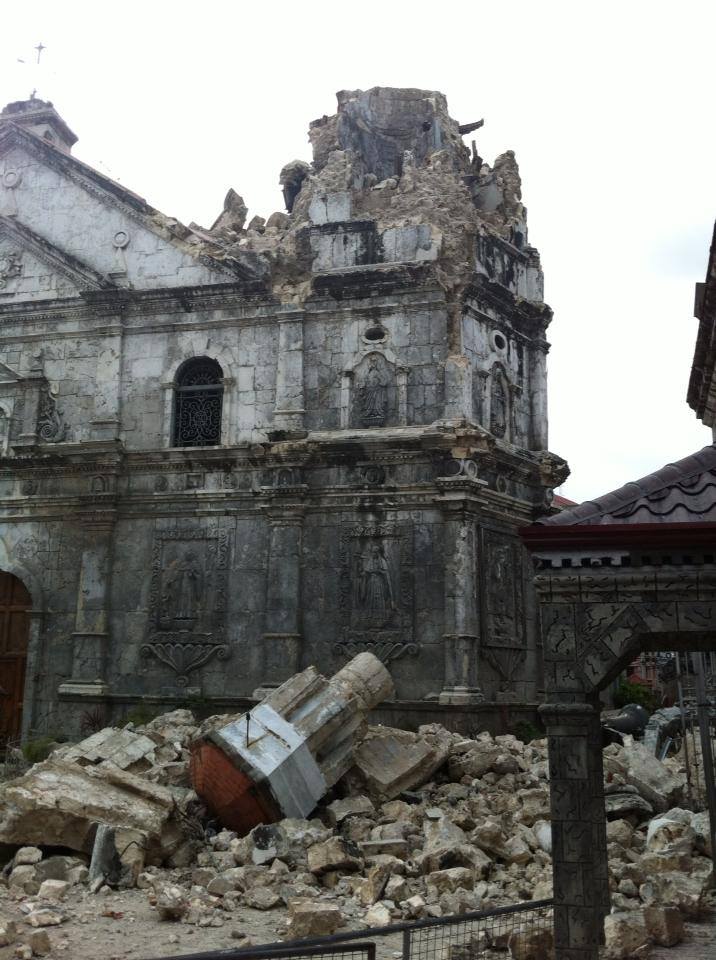
CEBU CITY—Thirtysomething Eddie had just exited the basement parking of a hotel when he heard a loud crashing noise from behind his van.
He got out and saw a large concrete block near the rear of his vehicle, then realized people were screaming, “Earthquake! Earthquake!”
Fear seized him as he now felt the ground under him shaking violently. “I could’ve been crushed by the debris,” Eddie, a driver for a car rental firm, said.
It was 8:12 on Tuesday morning, and Cebu and Bohol were reeling from the destructive 7.2-magnitude earthquake that has since set off nearly a thousand aftershocks and left at least 150 people dead, including 10 in Cebu province.
From where he was, Eddie saw the roof carvings of a big building cracking then crumbling. Fissures began forming on some old buildings, but he marveled at how some new ones went unscathed.
He receded to his car and grabbed the rosary from his glove compartment. Then the radio blared the news: The bell tower of the nearly 450-year-old Basilica Minore del Sto. Nino had collapsed.
“I was there on Sunday to pray to my favorite saints. Why should it happen?” a distressed Eddie said.
Minutes later, he got word from home: A portion of the roof and wall of his house in Guadalupe, Cebu had caved in.
Thus, when Malacanang placed Cebu and Bohol under a state of calamity later in the day, friends told Eddie he can now get help from government to fix his house.
Unsure of what it meant for victims like him, he asked, “Ma’am, what’s a state of calamity? What sort of help can I really get?”
The President can declare a state of calamity in “a condition involving mass casualty and/or major damages to property, disruption of means of livelihoods, roads and normal way of life of people in the affected areas as a result of the occurrence of natural or human-induced hazard.”
The presidential declaration paves the way for the release of calamity funds, a price freeze for basic necessities of 60 days unless lifted, and the granting of no-interest loans, as well as international humanitarian assistance.
Under the Local Government Code, local government units in areas declared to be in a state of calamity may draw from their calamity funds, a lump-sum appropriation generated from the 5 percent of the estimated revenue from regular sources. The funds are to be used for the repair and upgrading of public infrastructures and facilities, among others.
On top of that, local government units may enact a supplemental budget to buy supplies and materials or pay for services to prevent danger to or loss of life or property.
The importation of rice and payment of hazard allowance to public health workers and science and technological personnel may also be authorized during a state of calamity.
But it is the grant of no-interest loans by government financing or lending institutions that interests Eddie, especially those for home repairs.
“I was told to take pictures of the damage and submit these when I apply for a loan with SSS,” said Eddie, who is a member of the Social Security System.
The SSS on Wednesday approved a calamity relief package for SSS members and pensioners in Central Visayas, especially Cebu and Bohol, who were affected by the earthquake. The package includes early renewal of salary loans, relaxed loan terms for home repairs and advance release of three months’ worth of pensions.
The SSS said it has relaxed its terms for the House Repair and Improvement Loan Program for members living in the declared calamity areas like Eddie. House repair borrowers can avail themselves of reduced interest rates, to be fixed at 6 percent a year instead of the existing 9 percent. The regular application fee of up to P3,000 will also be waived.
The SSS is allowing members one year to apply for house repair loans to give them time to prepare the required documents.
Because the SSS branch in Cebu is being still assessed for structural stability, members and pensioners have been asked to transact with its service offices at Robinsons Malls in Mandaue, Cebu and Lapu-Lapu.
Eddie said he was hoping to fix his house a bit and start working on his application for a housing loan when he got off from work early Wednesday afternoon, but was forced to put these on hold.
Many of his co-workers took the day off or went on leave in the aftermath of the earthquake. There weren’t enough drivers to ferry the hotel guests, and his boss was frantic.
Eddie reluctantly agreed to go overtime and work till night. But he also saw the bright side: “I’ll have extra money for the repairs,” he said.
